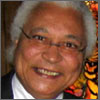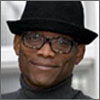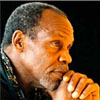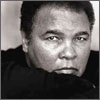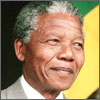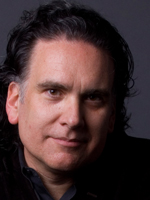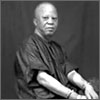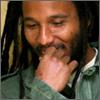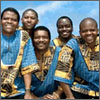
2009 Remembrance Programme
"Breaking the Silence: Beating the Drum"
The Transatlantic slave trade persisted for four centuries. Imagine being torn from your weeping family as a result of ethnic warfare…forced to walk hundreds of miles until you reach the sea on the West African side of the Atlantic Ocean. You are stripped of your name, your identity, of every right a human being deserves. The European ship that you are forced to board, is headed across the Atlantic to Caribbean and South American plantations, a voyage through the awful “middle passage”. A multitude of black people of every description chained together, with scarcely room to turn, traveling for months, seasick, surrounded by the filth of vomit-filled tubs, into which children often fell, some suffocating. The shrieks of the women, and the groans of the dying renders the whole scene of horror almost inconceivable. Death and disease are all around and only one in six will survive this journey and the brutal, backbreaking labour that follows.
The three-minute "Listen to the Drumbeat" video invites viewers to organize events on 25 March in Commemoration of the Victims of Slavery and the Transatlantic Slave Trade. It moves across cultures to show how the trade has influenced countries and artistic genres all over the world. A big bang on a drum symbolizes the beginning of the trade. From that point, we follow the dances and polyphonic rhythms of the African continent to a range of musics and dances in the Americas. From cow bells to talking drums, from mystic drums to candomblé, from ngoni to berimbau, the fighting and mystic spirit of drums accompanied enslaved black people everywhere, and the dance moves and sounds have remained almost intact. In Asia, in the Americas, in the Middle East, in Europe, rituals of African slaves and their soulful drumming touched all civilizations.
With salsa, rumba, blues, jazz, rock and roll, hip hop, and fusion but also Asian drumming, qawwali and ghazals, drums were never silenced. They brought the capoeira, an Afro-Brazilian art form that makes a ritual of movements from martial arts marked by fluid acrobatic play and feints.
The drum beat, slow and fast at times like a West African tempo from the Gold Coast, sad or joyful from tango to meringue, remains consistent in its universal appeal. Indeed, drums continue to carry to men and women of all color and creed a message that all understand: it is the soothing or haunting sound of freedom, even when journeys are harsh or long. Everywhere, drums give birth to a simple truth: every time you beat the drum, you break the silence.
Message of the Secretary-General | Message of the President of the UN General Assembly | Calendar of Events | Celebrities Profiles | Promotional Materials | Documents
Background
The transatlantic slave trade is a major element of global history, yet little is known about the 400-year long trade and its lasting consequences felt throughout the world, or of the contribution of slaves to the building of the societies of their enslavement. The exact number of people taken from Africa from 16th to the 19th Century and shipped across the notorious “Middle Passage” of the Atlantic - mainly to colonies in North America, South America, and the West Indies - is still hotly debated but estimates go up to 28 million. What is not in dispute is the extent of the cruelty endured in chains by the many African men, women and children, and the fact that many died before they could reach their destination. Those who made it were sold for huge profit into a life of slavery, enduring the worst indignities at the hands of slave masters.
Examining the lives of enslaved Africans in the Americas and the Caribbean displays the capacity of human beings to develop even under dehumanizing conditions, as well as some of the diverse ways in which human beings confront and transcend oppression.
On 17 December 2007, the General Assembly adopted resolutions A/RES/62/122, which calls inter alia for 25 March to be designated as International Day of Remembrance of the Victims of Slavery and the Transatlantic Slave Trade. The resolution requests that the Secretary-General, in collaboration with UNESCO, establish educational outreach programme to mobilize educational institutions, civil society and other organizations to inculcate in future generations, the “causes, consequences and lessons of the transatlantic slave trade, and to communicate the dangers of racism and prejudice”.
In 2008, the United Nations Department of Public Information (DPI) initiated an effort to reach out to schools and other educational institutions, civil society, media and the general public. DPI, in collaboration with the ambassadors of the Caribbean Community and the African Group held a solemn ceremony on 25 March 2008 in the United Nations General Assembly Hall. An exhibition in the Visitor’s Lobby, “The Middle Passage: White Ships, Black Cargo”, attracted many. The DPI/NGO Section and UNESCO Office in New York also held a briefing titled: “Lest We Forget: Breaking the Silence on the Transatlantic Slave Trade,” which was preceded by the premiere of the documentary “The Slave Route: A Global Vision”. A group of students sailing on a replica of the Freedom Schooner Amistad retracing the Transatlantic Slave Route joined an international videoconference, when their ship docked in St. Lucia on 26 March.
Objectives
Pursuant to General Assembly resolution A/RES/62/122, the International Day of Remembrance of the Victims of Slavery and the Transatlantic Slave Trade aims to:
- Establish an appropriate educational outreach programme;Mobilize educational institutions, civil society and other organizations;
- Inculcate in future generations the causes, consequences and lessons of the Transatlantic Slave Trade; and
- Communicate the dangers of racism and prejudice.
Proposal
In 2009, in a series of events celebrating the victory of humankind over adversity, the Department of Public Information proposes to amplify the number and visibility of commemorative activities. It plans to hold a series of events around the world, where officials and the public will join in “breaking the silence, beating the drum” at the same given hour.
On 25 March in New York, UN Secretary-General Ban will kick-start the commemoration by drumming some rhythms of his own at a midday special ceremony with Ambassadors from 192 countries. That evening, a cultural evening and concert will be held in the General Assembly Hall and feature musical talents and artists from all continents. Academics, celebrities, artists, writers and poets will contribute and participate in events in other countries.
Tasked with the organization of these events, the Outreach Division of DPI will collaborate with the two other Divisions as well as with UNESCO and a large number of stakeholders. Educational institutions, civil society and youth organizations, agencies of the UN system and United Nations Information Centres (UNICs) will participate in the global commemoration.
Slavery Today
“We should remember that even today, many millions of our fellow human beings are subjected to slavery-like practices…For all that has been accomplished in our campaign for human rights, we still have much to do.”
Secretary-General, Ban Ki-moon
Modern Forms of Slavery
The first annual International Day of Remembrance of the Victims of Slavery and the Transatlantic Slave Trade also serves as a reminder that contemporary forms of slavery – such as human traficking, forced prostitution, child soldiers, forced and bonded labour and the use of children in the international drug trade – are still flourishing today, largely as a result of vulnerability exacerbated by poverty, discrimination and social exclusion.
- It is estimated that more than 250,000 children are currently being exploited as child soldiers in as many as 30 areas of conflict around the world. Many of the kidnapped girls who are made into child soldiers are also forced into sexual slavery.
- The International Organization for Migration estimates that annually 700,000 women, girls, men and boys are being traficked across borders away from their homes and families and into slavery.
- An estimated 5.7 million children are victims of forced and bonded labour, also known as debt bondage, and 1.2 million children are victims of child trafficking.
- Linked to trafficking is the commercial sexual exploitation of children of whom 1 million, mainly girls, are forced into prostitution every year. These girls are sold for sex or used in child pornography in both the developed and the developing world.
“Despairingly credible comparisons of scale and suffering may be drawn with the trans-Atlantic trade in Africans in the Americas in which more than 12 million people were forcibly transported over the ocean in four hundred years. It is to our great shame that if today’s statistics are correct, and 700, 000 people are now being trafficked across borders into slavery annually, we will have equaled that total in a mere 20 years.”
Deputy Director-General, Ndioro Ndiaye, International Organization of Migration
It is the responsibility of us all to work to address the root causes of slavery, to provide assistance and protection to its victims and to ensure that there is no impunity for those who perpetuate the practice.
Sources:
- Office of the Special Representative of the Secretary-General for Children and Armed Conflict
- International Labour Organization, The end of child labour: Within reach (2006)
- Speech of the Deputy Director General of the International Organization for Migration (5 March 2007)
Secretary-General's Message
25 March 2009
The swearing in of a son of Africa as President of the United States this year marked, for many, a milestone on an epic journey that began more than 400 years ago. Throughout the Americas and the Caribbean, the descendants of history’s greatest forced migration have fought long and hard – and continue to fight – for justice, assimilation and respect.
The International Day of Remembrance of the Victims of Slavery and the Transatlantic Slave Trade honours the millions of Africans violently removed from their homelands and cast into slavery. Estimates vary of how many millions of men and women were transported, but what is not in dispute is the legacy of this vile traffic. Africa has yet to recover from the ravages of the slave trade or the subsequent era of colonization. And, across the Atlantic, and in Europe and elsewhere, people of African descent still struggle daily against entrenched prejudice that keeps them disproportionately in poverty.
Despite the official abolition of slavery, racism still pollutes our world. So too do contemporary forms of slavery, including bonded servitude, forced prostitution, and the use of children in warfare and the international drug trade. It is essential that we speak out loud and clear against such abuses. The Universal Declaration of Human Rights states that “all human beings are born free and equal in dignity and rights.” Failure to observe this fundamental principle leads directly to the inhumanity of slavery and the horror of genocide.
Speaking out is the theme of this year’s observance. It asks us to “Break the Silence, Beat the Drum”. Since the dawn of humanity in Africa, drums have provided the pulse of our history, and they continue to help us celebrate our common humanity. Today I urge everyone, everywhere, to beat the drum to proclaim that black or white, man or woman, we are one people. When musicians play, they pay attention to each other while playing their own parts. We must follow their lead. We can achieve harmony only if we respect each other, rejoice in our diversity, and work together for our common goals.
Ban Ki-moon
General Assembly President's Message
March 25, 2009
Excellencies, Mr. Secretary-General, Distinguished Artists and Musicians, Brothers and Sisters All,
Let me begin by thanking you all for making today’s Remembrance of the Victims of Slavery and the Transatlantic Slave Trade the focus of attention not only here at the United Nations, but around the entire world. It is as if, after so many centuries, the world is finally beginning to come to terms with what is one of the darkest stains in our long history of inhumane treatment of our fellow Sisters and Brothers. It is indeed ironic that we are celebrating this commemoration of such a bitter legacy. But this transformation is cause for celebration, as well as solemn commemoration.
The abolition of the transatlantic slave trade in 1808 seems so long ago and far away. But I believe most of us appreciate the importance of bringing this historic event to the attention of the world.
The abolition of the slave trade, which criss-crossed the Atlantic from Africa to Europe, Latin America and North America for hundreds of years, did not actually end slavery. In fact, it provoked bitterness and bloodshed that linger today. But it was an important step towards this ban, marking one of the early decisions by the international community to join forces to combat the barbarous and enormously lucrative slave trade.
I have always been an advocate of forgiveness and reconciliation. The slave trade constitutes one of those horrendous crimes against humanity. It is a wonder that so many Africans and their African-America descendents have been generous enough to forgive these crimes; but that none of us, anywhere in the world, should forget.
A part of this historic tragedy is the fact that the slave trade and slavery itself continue to have deep, if unacknowledged relevance to our world today. We see it in the continuing racism that remains ingrained in virtually all our societies. Let us keep in mind that this pervasive evil is what makes the Durban Anti-Racism Review Conference, set to meet in Geneva next month, so relevant and so important. Let us work together ensure that this controversial conference is constructive and successful.
Slavery’s relevance today reminds us that the slave trade was an institution that not only devastated a continent but poisoned the roots of societies young and old by its corrosive presence. We all continue to suffer the consequences of this exploitation – obviously some of us much more than others.
As well, even as we focus on the victims of the slave trade, we must acknowledge that a contemporary form of slavery remains with us, often invisible and tolerated on an international scale. Despite legislation that proclaims that slavery and the slave trade shall be prohibited in all their forms, millions of people remain victims of slavery. One has only to refer to reports on the horrendous conditions of rural workers, often indigenous peoples, who are victims of the traditional forms of slavery.
And there are the more modern forms of slavery that rely on human trafficking – international trade at its most evil. These victims include forced laborers, child soldiers and sex slaves, as well as those trafficked in the illegal adoption trade or for the purpose of organ removal. I think we can be proud of the work of the General Assembly is working on many fronts to abolish and punish these contemporary crimes against humanity.
But today, we have come together to commemorate the countless victims of the TransAtlantic Slave Trade – and give their memory the honour and recognition that so many would rather deny. I applaud the work of the Department of Public Information and the generous spirit of so many musicians who are here to raise the profile of this commemoration. Let us all join them in the concerted effort to make slavery a distant memory rather than a nightmarish reality it remains today.
Thank you.
H.E. Mr. Miguel d'Escoto Brockmann
Calendar of Events
Tuesday, 24 March
Documentary Films Screenings
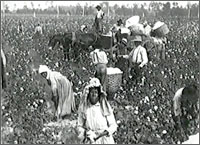 1: 15 p.m. “Scattered Africa: Faces and Voices of the African Diaspora” (USA, 2008) 52 min. During the centuries of the Transatlantic Slave Trade, an estimated 100 million African people were torn from their homelands. Cultural anthropologist and filmmaker Dr. Sheila S. Walker takes viewers across the Americas, to Argentina, Uruguay and the United States, exploring past and current contributions that African people made to American culture. Q&A with Mr. Georges Collinet, who is featured in the film, will follow. For more information, please contact Einat Temkin.
1: 15 p.m. “Scattered Africa: Faces and Voices of the African Diaspora” (USA, 2008) 52 min. During the centuries of the Transatlantic Slave Trade, an estimated 100 million African people were torn from their homelands. Cultural anthropologist and filmmaker Dr. Sheila S. Walker takes viewers across the Americas, to Argentina, Uruguay and the United States, exploring past and current contributions that African people made to American culture. Q&A with Mr. Georges Collinet, who is featured in the film, will follow. For more information, please contact Einat Temkin.
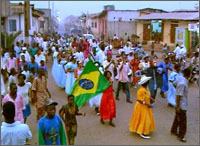 2:45 p.m. "Black Atlantic: On the Orixas Route" Brazil, 2001, 55 min. The waters of the Atlantic brought the slaves from Africa to Brazil, their bodies in chains but their souls inexorably tied to mother Africa. This Brazilian-made film takes us to both shores, to show how spiritual life, dance and song came with the captive people and took root in the new soil. Among the many traditions were the language and gods of Yoruba and Jejes from the Republic of Benin. When a group of freed slaves returned to Africa to rediscover their roots they were looked upon as outsiders. Today, when Brazilians revisit Africa , they take with them the culture that the descendants of the slaves have kept alive in Brazil . The documentary is a testimony to some of the ironies of the Diaspora. Q & A with the film's director, Renato Barbieri, will follow. For more information, please contact Einat Temkin.
2:45 p.m. "Black Atlantic: On the Orixas Route" Brazil, 2001, 55 min. The waters of the Atlantic brought the slaves from Africa to Brazil, their bodies in chains but their souls inexorably tied to mother Africa. This Brazilian-made film takes us to both shores, to show how spiritual life, dance and song came with the captive people and took root in the new soil. Among the many traditions were the language and gods of Yoruba and Jejes from the Republic of Benin. When a group of freed slaves returned to Africa to rediscover their roots they were looked upon as outsiders. Today, when Brazilians revisit Africa , they take with them the culture that the descendants of the slaves have kept alive in Brazil . The documentary is a testimony to some of the ironies of the Diaspora. Q & A with the film's director, Renato Barbieri, will follow. For more information, please contact Einat Temkin.
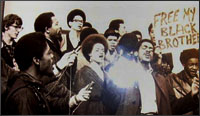 4:15 p.m. “Merritt College: Home of the Black Panthers" (USA, 2008) 62 min. Narrated by Congresswoman Barbara Lee, this film chronicles the birth of the Black Panther Party at Merritt College in Oakland during the politically, socially and economically turbulent times of the late 1960. This story is told through rare interviews with original party members and other key players – who were Merritt students at the time – and features original artwork from the many Black Panther Party publications as well as rarely seen photos – and focuses on the positive achievements of the Panthers movement and its legacy, not of violence but of what it learned and what it left behind. Q&A with the director, Jeffrey Heyman (USA), Executive Director, Marketing, Public Relations and Communications, Peralta Community College District will follow. For more information, please contact Einat Temkin.
4:15 p.m. “Merritt College: Home of the Black Panthers" (USA, 2008) 62 min. Narrated by Congresswoman Barbara Lee, this film chronicles the birth of the Black Panther Party at Merritt College in Oakland during the politically, socially and economically turbulent times of the late 1960. This story is told through rare interviews with original party members and other key players – who were Merritt students at the time – and features original artwork from the many Black Panther Party publications as well as rarely seen photos – and focuses on the positive achievements of the Panthers movement and its legacy, not of violence but of what it learned and what it left behind. Q&A with the director, Jeffrey Heyman (USA), Executive Director, Marketing, Public Relations and Communications, Peralta Community College District will follow. For more information, please contact Einat Temkin.
Guests with a UN grounds pass may proceed directly to the Dag Hammarskjöld Library Auditorium where seating will be on a first-come, first-served basis.
Non-UN grounds pass holders may register by sending email to Einat Temkin or by fax at (212) 963-0536 or obtain tickets in the UN public lobby from 12:00 p.m. to 4:15 p.m. on 24 March.
Guests are welcome to attend individual films or the entire programme. For more information please contact Einat Temkin tel: (917) 367-5841
"Drums" Exhibit
Inauguration Introduced and moderated by Kiyo Akasaka, Under-Secretary-General, DPI Opening by Asha Rose Migiro, Deputy Secretary-General Statement by the Head of the Cameroon Delegation
6:00 pm – 6: 45 pm
Sponsored by Cameroon, this one month exhibit is organized with the support of DPI, in collaboration with the Schomburg Center for Research in Black Culture, CARICOM and the African Union. It is envisaged that the Deputy Secretary-General will officially open the exhibit. The exhibit will highlight the historical perspective and socio-cultural impact of drums throughout the Slave Trade and beyond, from Africa to the Americas. The opening of the exhibit will be followed by a reception at the Delegates’ Dining Room.
For more information, please contact: Jan Arnesen.
Wednesday, 25 March
Student Videoconference
9:00 a.m. – 11:30 a.m.
Introduced by Ramu Damodaran, Deputy Director, OD/DPI Moderated by Yvonne Acosta, Chief, Education Outreach, OD/DPI
The Education Outreach Cluster will organize a Student Video Conference at United Nations Headquarters to mark the observance of the International Day of Remembrance of the Victims of Slavery and the Transatlantic Slave Trade. In preparation for the observance and for the student video conference, the UN Cyberschoolbus team will develop an educational guide on the theme of the conference which will be linked it to the site in the United States that are part of the UNESCO-Associated Schools Project (ASPnet) Network, involving schools from around the world that have participated in programmes and research projects on slavery and the Slave Trade as well as schools in the New York city that will gather at UN Headquarters to connect with students gathered at videoconference sites for the event. At the close of the Student Video Conference, the New York City students will attend the Special Noon Drumming Event at UN Headquarters which will also be viewed by students from the other video conference sites.
For more information, please contact Yvonne Acosta or Bill Yotive.
Special Noon Drumming Event
12:00 – 12:30 p.m.
Introduced and moderated by Kiyo Akasaka, USG, DPI Statements by Ban Ki-moon, Secretary-General Miguel d’Escoto Brockman, President of the GA African Representative CARICOM Representative
Symbolic launch by the Secretary-General of commemorative events in New York, in the presence of the President of the General Assembly and ambassadors of all Member States. Musicians, drummers, steel bands and schools will participate. The UNESCO Director General will hold a similar event in Paris. Elsewhere in the world, similar events are being organized at noon local time by DPI and other partners to commemorate the International Day.
For more information, please contact: Juan Carlos Brandt.
Press Conference
1:00 pm – 1:45 pm
Chaired by Kiyo Akasaka, Under-Secretary-General, DPIWith artists Akon and Peter Buffett, Salif Keita, Gilberto Gil and Emmeline Michel (TBC)
Cultural Evening & Concert - General Assembly Hall
7:15 p.m. - 11:00 p.m.
 Concert moderated by CCH Pounder and Eric Falt
Concert moderated by CCH Pounder and Eric Falt
A first of its kind cultural evening and concert entitled “Breaking the Silence, Beating the Drum” will form the centerpiece of the commemoration with a chorus of celebrities and dignitaries representing the global community collectively celebrating the resilience of the human spirit and victory over adversity. Confirmed artists and celebrities: Akon (Senegal/USA) & Peter Buffett (USA); Mezzo-Soprano Audrey Babcock (USA); Soprano Angela Brown (USA); The Blind Boys of Alabama (USA); Izaline Calister (Curacao/The Netherlands); Toumani Diabaté (Mali); Danny Glover (USA); Gilberto Gil (Brazil); Bill T. Jones (USA); Sarah Jones (USA); Salif Keita (Mali) and his Band; Ladysmith Black Mambazo (South Africa); Emeline Michel (Haiti); The Marley Brothers (Jamaica); CCH Pounder (Guyana/USA/Senegal); Stephanie Benson (Ghana); Phylicia Rashad (USA); Tenor Noah Stewart (USA); Randy Weston (USA) and his Quintet; Choreographer Gabri Christa (Curacao/The Netherlands) and ten award winning dancers of various nationalities in a piece dedicated to the Middle Passage. Other invited celebrities will be present in the Hall. Pre-taped testimonials from Nelson Mandela and Muhammad Ali will be shown.
For more information, please contact: Jean-Victor Nkolo.
Thursday, 26 March
DPI/NGO Briefing: Panel Discussion on the “Legacy of the Slave Trade on Modern Society Introduced and moderated by Eric Falt
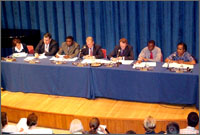 10:15 a.m. - 12.15 p.m.
10:15 a.m. - 12.15 p.m.
Participants:
Sylviane A. Diouf Ph.D. (Senegal), Author of several books on slavery, Curator of Digital Collections, Schomburg Center for Research in Black Culture.
Jeffrey Heyman (USA), Executive Director, Marketing, Public Relations and Communications, Peralta Community College District.
Jean Claude Martineau (Haiti), poet and historian.
Ngugi wa Thiong'o (Kenya), Author and distinguished Professor of English and Comparative Literature, University of California; and
Derek Walcott (St Lucia), Nobel Prize.
For more information, please contact: Gail Bindley-Taylor Sainte.
Special Book Event
01:30 p.m. - 2:30 p.m.
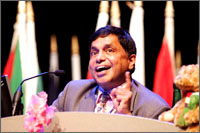 Introduced and moderated by Ramu Damodaran Deputy Director, Outreach Division
Introduced and moderated by Ramu Damodaran Deputy Director, Outreach Division
The event at the UN Bookshop will focus on slavery; Aimé Césaire; Drums; and global nomads. Meet the author / book signing with Derek Walcott, Ngugi wa Thiong'o and Sylviane Diouf. One online publication/social network will participate in this special event.
For more information, please contact: Christopher Woodthorpe.
Celebrities Profiles
Tuesday, 24 March - Documentary Films Screenings
|
|
|
|
GEORGES COLLINET, Representing the film “Scattered Africa”
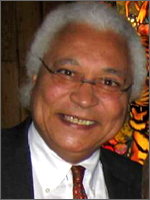 Georges Collinet has over 38 years experience as a film and video producer, journalist, and radio personality, in the United States, Europe and Africa. He hosts the highly successful and award-winning weekly Public Radio broadcast, Afropop Worldwide heard in the United States, Europe and Africa. For 35 years, Mr. Collinet has worked with the Voice of America and the Television and Film Service of the United States Information Agency and the International Broadcasting Bureau, attracting daily listening audiences of over 110 million people per show.
Georges Collinet has over 38 years experience as a film and video producer, journalist, and radio personality, in the United States, Europe and Africa. He hosts the highly successful and award-winning weekly Public Radio broadcast, Afropop Worldwide heard in the United States, Europe and Africa. For 35 years, Mr. Collinet has worked with the Voice of America and the Television and Film Service of the United States Information Agency and the International Broadcasting Bureau, attracting daily listening audiences of over 110 million people per show.
He has filmed documentaries and conducted media training workshops throughout Africa, India, Madagascar and the Caribbean, training hundreds of radio and television journalists. Mr. Collinet has served as an Adviser for NBC’s Today in Africa, and presented lectures regarding African music and culture to colleges and universities. He has led seminars on public diplomacy for the Foreign Service Institute and Georgetown University. In 1997, he directed and presented the 13-part television series, Africa: Search for Common Ground”, about conflict resolution in Africa. He won the Columbus Award for his segment on Zaire.
JEFFREY HEYMAN, Director of “Merritt College: Home of the Black Panthers”
 Jeffrey Heyman is Executive Director for Marketing, Public Relations and Communications at the Peralta Community College District in the San Francisco Bay Area. The District’s four colleges serve 60,000 students annually. Mr. Heyman oversees Peralta TV, one of the oldest of a handful of the innovative college television stations in the United States. Peralta TV has won numerous awards for its programming.
Jeffrey Heyman is Executive Director for Marketing, Public Relations and Communications at the Peralta Community College District in the San Francisco Bay Area. The District’s four colleges serve 60,000 students annually. Mr. Heyman oversees Peralta TV, one of the oldest of a handful of the innovative college television stations in the United States. Peralta TV has won numerous awards for its programming.
Previously, Mr. Heyman worked as an Information Officer with the United Nations Department of Peacekeeping Operations and served in UNPROFOR as Head of United Nations Radio for Former Yugoslavia. He also set up UN radio operations for UNAVEM in Angola and UNAMIR in Rwanda.
He was also Program Director for Radio UNTAC in Cambodia, the UN’s first peacekeeping radio station, and, later, was Acting General Manager for the OSCE’s national radio network in Bosnia and Herzegovina, Radio FERN. Mr. Heyman has also consulted on broadcast initiatives to governments and NGOs.
RENATO BARBIERI, Director of “Black Atlantic: On the Orixas Route”
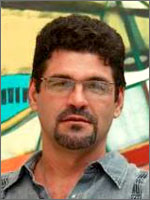 Renato Barbieri is a noted documentary filmmaker from Brazil. He has directed several television programs of national impact, as well as special segments for the daily TV newscast Jornal de Vanguarda in Rede Bandeirantes and the weekly program and Show Window Forum, on TV Cultura. In 1992 he founded the production company Videographia and has since produced critically acclaimed documentaries such as Black Atlantic: On the Orixas Route, Félix Varela, Malagrida, The Invention of Brasilia, Land of Quilombo - Spaces of Freedom, Mozambique and The League of Language.
Renato Barbieri is a noted documentary filmmaker from Brazil. He has directed several television programs of national impact, as well as special segments for the daily TV newscast Jornal de Vanguarda in Rede Bandeirantes and the weekly program and Show Window Forum, on TV Cultura. In 1992 he founded the production company Videographia and has since produced critically acclaimed documentaries such as Black Atlantic: On the Orixas Route, Félix Varela, Malagrida, The Invention of Brasilia, Land of Quilombo - Spaces of Freedom, Mozambique and The League of Language.
Barbieri has filmed in all regions of Brazil and in different countries and cultures, including Italy, Spain, Portugal, Benin, Mozambique, United States, Cuba and Venezuela. Recently he has been working on preproduction of a new drama project to be filmed in African countries Mali and Burkina Faso.
Wednesday, 25 March - Cultural Evening & Concert/Press Conference
|
|
|
|
|
|
|
|
|
|
|
|
|
|
|
|
|
|
|
|
 PHYLICIA RASHAD |
|
|
|
|
|
|
|
|
|
AKON (Senegal/USA)
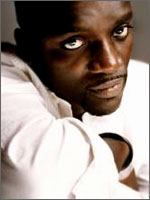 A Senegalese African, AKON moved to the United States when he was seven. His family is headed by legendary percussionist and jazz musician Mor Thiam, whose expertise for playing the Djembe, a traditional African drum, has been touted as "unrivaled." Being brought up in an environment that treasures the true artistic value of musicianship and revels in the mastering of instrumental skill has had a momentous affect on AKON. It was AKON's deep rooted love and passion for music, evolving from filial admiration, which allowed him to turn his life around, despite his trouble as a youth residing in New Jersey. AKON began playing several different percussion instruments and eventually embraced hip-hop music and culture, despite his initial disdain for the genre. AKON's personal appeal and ability to reach a listener is a part of his whole package: a package that includes, most importantly, his distinctive vocals and a relaxed singing style. It is as though he is speaking to you as he sings in a very intimate manner. "When I sing the sound comes from the mood that I am in. These records are coming straight from the heart," AKON divulges. Genuine and honest, AKON's music is a step in a new direction: a trajectory that will lead us on a delightfully fulfilling path. (from 365music.com)
A Senegalese African, AKON moved to the United States when he was seven. His family is headed by legendary percussionist and jazz musician Mor Thiam, whose expertise for playing the Djembe, a traditional African drum, has been touted as "unrivaled." Being brought up in an environment that treasures the true artistic value of musicianship and revels in the mastering of instrumental skill has had a momentous affect on AKON. It was AKON's deep rooted love and passion for music, evolving from filial admiration, which allowed him to turn his life around, despite his trouble as a youth residing in New Jersey. AKON began playing several different percussion instruments and eventually embraced hip-hop music and culture, despite his initial disdain for the genre. AKON's personal appeal and ability to reach a listener is a part of his whole package: a package that includes, most importantly, his distinctive vocals and a relaxed singing style. It is as though he is speaking to you as he sings in a very intimate manner. "When I sing the sound comes from the mood that I am in. These records are coming straight from the heart," AKON divulges. Genuine and honest, AKON's music is a step in a new direction: a trajectory that will lead us on a delightfully fulfilling path. (from 365music.com)
Website: http://www.akononline.com
AUDREY BABCOCK, Mezzo-Soprano (USA)
Th e power and sultry elegance that comes naturally to mezzo-soprano, Audrey Babcock, easily evokes such signature roles as Carmen, Lucretia, or Delilah. However, it is her rich sound coupled with an instinctual sense of timing that has allowed the versatile young singer to weave in and out of sensuality, tragedy, comedy, and madness.
e power and sultry elegance that comes naturally to mezzo-soprano, Audrey Babcock, easily evokes such signature roles as Carmen, Lucretia, or Delilah. However, it is her rich sound coupled with an instinctual sense of timing that has allowed the versatile young singer to weave in and out of sensuality, tragedy, comedy, and madness.
Of her recent performance in Rigoletto with Florida Grand Opera, Mr. Budmen of the Miami Herald wrote, "Audrey Babcock's dusky mezzo-soprano and sexy theatricality lit up the stage as Maddalena." This season Ms. Babcock has performed the title role in Carmen for the Westfield Symphony (a role she covered for The New York City Opera), Lola in Cavalleria Rusticana (Washington Concert Opera) and she presented New York with a gritty new conception of the music of Kurt Weill in the her one woman show, Lily, her life his music; a show about a fictional Holocaust survivor. Past productions include Mrs. Lovett in Sweeney Todd and Tisbe in La Cenerentola (Wolf Trap Opera), Carmen in The Tragedy of Carmen (Florida Grand Opera), and the title role of Benjamin Britten's The Rape of Lucretia (Santa Fe Opera Apprentice Artists showcase). Ms. Babcock has also performed with the New York City Opera, Seattle Opera, Santa Fe Opera, Florida Grand Opera, and The New World Symphony.
Website: http://www.audreybabcock.com
ANGELA BROWN, Soprano (USA)
 Angela Brown personifies the ideal American dramatic soprano: sheer vocal power; luxurious finesse; shimmering, high pianissimos; and a charming personality larger than life. Her highly successful Metropolitan Opera debut in 2004 sparked a media excitement with reviews from The New York Times: At last an Aida, the Associated Press: she combines a potent, dusky lower register with a striking ability to spin out soft high notes of shimmering beauty. There’s no doubt her voice is powerful enough for Verdi, CBS Evening News: the future of opera has arrived, and features on the front page of The New York Times and in Oprah Magazine, Essence Magazine, Ebony Magazine, Classical Singer, Reader's Digest, and Psychology Today.
Angela Brown personifies the ideal American dramatic soprano: sheer vocal power; luxurious finesse; shimmering, high pianissimos; and a charming personality larger than life. Her highly successful Metropolitan Opera debut in 2004 sparked a media excitement with reviews from The New York Times: At last an Aida, the Associated Press: she combines a potent, dusky lower register with a striking ability to spin out soft high notes of shimmering beauty. There’s no doubt her voice is powerful enough for Verdi, CBS Evening News: the future of opera has arrived, and features on the front page of The New York Times and in Oprah Magazine, Essence Magazine, Ebony Magazine, Classical Singer, Reader's Digest, and Psychology Today.
A 1997 National Metropolitan Opera Council Auditions Winner, Miss Brown received her Bachelor of Music degree in voice from Oakwood College in Huntsville, Alabama, where she studied with Ginger Beazley. She attended the Indiana University School of Music as a student in the studio of Virginia Zeani. Miss Brown received the Indiana University African American Arts Institute's inaugural Herman C. Hudson Alumni Award in 2006, given annually to recognize outstanding contributions made in the arts by former members of the Institute. Miss Brown's previous solo appearances include: Metropolitan Opera; National Opera of Paris; Bilbao Opera, Spain; Teatro La Fenice; Opera Company of Philadelphia; Cincinnati Opera; Opera Pacific; Florentine Opera; Indianapolis Opera; Michigan Opera Theatre; Dayton Opera; Florida Grand Opera; The Philadelphia Orchestra; Auckland Philharmonia; Latvian National Symphony; Festival of St. Denis, France; Indianapolis Symphony; Cincinnati Pops; Brevard Festival Orchestra; Roanoke Symphony; El Paso Symphony; Knoxville Symphony; Chautauqua Institution; the Kimmel Center in Philadelphia and the John F. Kennedy Center for the Performing Arts in Washington, D.C. Angela has performed in recital throughout the United States, Canada, New Zealand and Africa.
Website: http://www.angelambrown.com
THE BLIND BOYS OF ALABAMA, (USA)
Members: Jimmy Carter - Vocal: Ben Moore - Vocal: Eric (Ricky) McKinnie - Drummer: Joey Williams Lead Guitar: Tracy Pierce - Bass
 Since 1939, The Blind Boys of Alabama have sung a fervent blend of traditional and contemporary Gospel music. Much has changed during these seven prolific decades. Stylistic phases have waxed and waned; personnel has come and gone. 78 r.p.m. records have given way to LPs, followed by eight-track tapes, cassettes, and CDs. The Blind Boys’ audience – once rigidly segregated and confined to traditional Gospel venues – now reflects the group’s eclectic, global following, while their repertoire has expanded to embrace secular songs with a strongly spiritual message. Such wide acceptance is also evidenced by four Grammy Awards, an honor that didn’t exist when the Blind Boys started out. Even so, the Blind Boys’ lengthy saga remains a steadfast testament to constancy. Singer Jimmy Carter, who was there when the group was first formed, leads the band today with the firm conviction, joyous commitment, and gravitas that befit an elder statesman.
Since 1939, The Blind Boys of Alabama have sung a fervent blend of traditional and contemporary Gospel music. Much has changed during these seven prolific decades. Stylistic phases have waxed and waned; personnel has come and gone. 78 r.p.m. records have given way to LPs, followed by eight-track tapes, cassettes, and CDs. The Blind Boys’ audience – once rigidly segregated and confined to traditional Gospel venues – now reflects the group’s eclectic, global following, while their repertoire has expanded to embrace secular songs with a strongly spiritual message. Such wide acceptance is also evidenced by four Grammy Awards, an honor that didn’t exist when the Blind Boys started out. Even so, the Blind Boys’ lengthy saga remains a steadfast testament to constancy. Singer Jimmy Carter, who was there when the group was first formed, leads the band today with the firm conviction, joyous commitment, and gravitas that befit an elder statesman.
Website: http://www.blindboys.com
IZALINE CALISTER, (Curacao/The Netherlands)
 Izaline Calister - Singer, composer and lyricist with a distinctive personal musical style. A charismatic performer, at times warm and intimate, then again expressive and extroverted, masterfully weaving together the traditional music of her native island, Curaçao (Dutch Caribbean), with Jazz. Izaline possesses the exceptional gift that makes all the difference for a soloist, as she sings in her mother tongue, Papiamentu, with feeling and grace. She has this ability to remain true to her roots and successfully reach out and conquer audiences around the world singing in an unfamiliar language, while melding seamlessly the pulsating rhythms of Afro-Antilles music with Jazz.
Izaline Calister - Singer, composer and lyricist with a distinctive personal musical style. A charismatic performer, at times warm and intimate, then again expressive and extroverted, masterfully weaving together the traditional music of her native island, Curaçao (Dutch Caribbean), with Jazz. Izaline possesses the exceptional gift that makes all the difference for a soloist, as she sings in her mother tongue, Papiamentu, with feeling and grace. She has this ability to remain true to her roots and successfully reach out and conquer audiences around the world singing in an unfamiliar language, while melding seamlessly the pulsating rhythms of Afro-Antilles music with Jazz.
Website: http://www.izalinecalister.com
TOUMANI DIABATTÉ, (Mali)
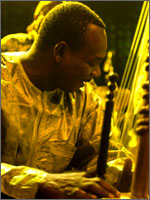 Toumani Diabaté is one of the most important musicians in Africa. Toumani plays the kora, a harp unique to West Africa with 21 strings; and more than any other kora player it is Toumani who is responsible for bringing this instrument to audiences around the world. He is a performer of truly exceptional virtuosity and creativity - someone who shows that the kora can rival the world's greatest instruments.
Toumani Diabaté is one of the most important musicians in Africa. Toumani plays the kora, a harp unique to West Africa with 21 strings; and more than any other kora player it is Toumani who is responsible for bringing this instrument to audiences around the world. He is a performer of truly exceptional virtuosity and creativity - someone who shows that the kora can rival the world's greatest instruments.
Toumani was born in Bamako, the capital of Mali, in 1965 into a family of exceptional griots (hereditary musician/historian caste); his research shows 71 generations of kora players from father to son.
In recent years Toumani has been enjoying recognition for his contribution to the development of the kora, and as a key figure in African music. In 2004 he received the Zyriab des Virtuoses, a UNESCO prize awarded at the Mawazine Festival organised by King Mohammed 6th of Morocco. He is the first black African ever to be given the prize. Toumani is an active and dynamic member of the Malian musical community, and influential to the new generation. He has been taking steps to help preserve the legacy of traditional kora music in Mali, and to educate future generations of their rich musical heritage, whilst encouraging them to also explore the creative possibilities within music. He is President/Director of Mandinka Kora Productions, who actively promote the kora through workshops, festivals, and various cultural events. Toumani is also a teacher of the kora and of modern and traditional music at the Balla Fasseke Conservatoire of Arts, Culture and Multimedia, which opened in Bamako at the end of 2004.
Throughout Toumani's career, each of the albums he has released are distinctly unique and highlight his diversity as a musician. This is indeed what Toumani is so good at - bringing together the old and new in timeless beautiful music, the very best that Africa has.
Website: http://www.worldcircuit.co.uk/#Toumani_Diabate
PETER BUFFET, (USA)
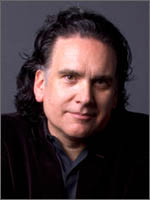 Peter Buffett is a well-established composer/producer and Co-Chairman of the NoVo Foundation. Born in Omaha, Nebraska, Buffett began his career in San Francisco writing music for commercials. He has 8 released albums on the Narada, Epic and Hollywood labels as well as 6 releases on his own label - including the Emmy award winning CD, Ojibwe. Highlights of his film and television work include the ‘Fire Dance’ scene in the Oscar winning film Dances With Wolves and the score for 500 Nation,s the 8 hour miniseries for CBS produced by Kevin Costner. Buffett's theatrical production, Spirit – The Seventh Fire, was located on the National Mall for the Smithsonian's opening of the National Museum of the American Indian. As Co-Chairman of the NoVo Foundation, Buffett helps guide the strategic plan that he and his wife Jennifer will implement with a small dedicated staff over the coming years.
Peter Buffett is a well-established composer/producer and Co-Chairman of the NoVo Foundation. Born in Omaha, Nebraska, Buffett began his career in San Francisco writing music for commercials. He has 8 released albums on the Narada, Epic and Hollywood labels as well as 6 releases on his own label - including the Emmy award winning CD, Ojibwe. Highlights of his film and television work include the ‘Fire Dance’ scene in the Oscar winning film Dances With Wolves and the score for 500 Nation,s the 8 hour miniseries for CBS produced by Kevin Costner. Buffett's theatrical production, Spirit – The Seventh Fire, was located on the National Mall for the Smithsonian's opening of the National Museum of the American Indian. As Co-Chairman of the NoVo Foundation, Buffett helps guide the strategic plan that he and his wife Jennifer will implement with a small dedicated staff over the coming years.
DANNY GLOVER, (USA)
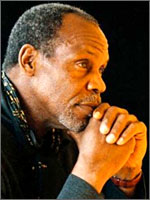 From “Places in the Heart” and the “Lethal Weapon” series to the award-winning “To Sleep with Anger” (which he also executive produced), Danny Glover is one of Hollywood’s most renowned and respected leading men. An actor, producer and director, this versatile superstar has impacted stage, screen, and television for over a decade. One of his most recent projects reunited him with Oprah Winfrey (first brought together for the filming of Alice Walker’s “The Color Purple”) for the acclaimed film adaptation of Toni Morrison’s “Beloved.” Glover is the recipient of several prestigious honors for his impressive body of work. They include two NAACP Image Awards, 3 Cable ACE Awards, the Independent Feature Project/West’s Best Actor Award, the Phoenix Award from the Black American Cinema Society and induction into the Black Filmmakers Hall of Fame. Glover also received an Emmy nomination as Best Supporting Actor for his performance in the mini-series “Lonesome Dove” and Turner Network Television's “Freedom Song.” Off-screen, he is a powerful advocate for literacy and has spoken to grammar and high school students around the nation about the joys of reading and education. He was also appointed the first Goodwill Ambassador to the United Nations Development Programme, and received the first annual William Kunstler Racial Justice Award for his work on a variety of social issues. He also received a Lifetime Achievement Award from Amnesty International and an Essence Award.
From “Places in the Heart” and the “Lethal Weapon” series to the award-winning “To Sleep with Anger” (which he also executive produced), Danny Glover is one of Hollywood’s most renowned and respected leading men. An actor, producer and director, this versatile superstar has impacted stage, screen, and television for over a decade. One of his most recent projects reunited him with Oprah Winfrey (first brought together for the filming of Alice Walker’s “The Color Purple”) for the acclaimed film adaptation of Toni Morrison’s “Beloved.” Glover is the recipient of several prestigious honors for his impressive body of work. They include two NAACP Image Awards, 3 Cable ACE Awards, the Independent Feature Project/West’s Best Actor Award, the Phoenix Award from the Black American Cinema Society and induction into the Black Filmmakers Hall of Fame. Glover also received an Emmy nomination as Best Supporting Actor for his performance in the mini-series “Lonesome Dove” and Turner Network Television's “Freedom Song.” Off-screen, he is a powerful advocate for literacy and has spoken to grammar and high school students around the nation about the joys of reading and education. He was also appointed the first Goodwill Ambassador to the United Nations Development Programme, and received the first annual William Kunstler Racial Justice Award for his work on a variety of social issues. He also received a Lifetime Achievement Award from Amnesty International and an Essence Award.
GILBERTO GIL, (Brazil)
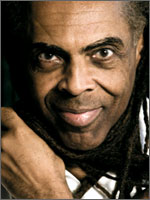 Gilberto Gil carries out a fundamental role in the constant modernization process of Brazilian popular music. Partaking of this scene for 43 years, he has developed one of the most relevant and renown careers as a singer, composer and guitar-player in this field. Gil has had his albums released abroad since 1978, the year of his successful performance at the Montreux Jazz Festival, in Switzerland, recorded live. Every year he tours Europe, North America, Latin America and Japan with his contagious pop music spoken in portuguese-brazilian and international language. A music with a strong rhythmic appeal and melodic richness, as mixed as its people.
Gilberto Gil carries out a fundamental role in the constant modernization process of Brazilian popular music. Partaking of this scene for 43 years, he has developed one of the most relevant and renown careers as a singer, composer and guitar-player in this field. Gil has had his albums released abroad since 1978, the year of his successful performance at the Montreux Jazz Festival, in Switzerland, recorded live. Every year he tours Europe, North America, Latin America and Japan with his contagious pop music spoken in portuguese-brazilian and international language. A music with a strong rhythmic appeal and melodic richness, as mixed as its people.
Rhythms from the northeast of Brazil like the baião, apart from samba and bossa-nova were fundamental in his formation. Using them as a starting point, Gil forged his own music to which he incorporated rock, reggae, funk and rhythms from Bahia such as afoxé. Gil has tackled a wide variety of issues in his lyrics, pertinent to modern reality: from social inequality to the racial question, from African to Oriental culture, from science to religion, among others. The mastership with which Gil explores these subjects makes him one of the greatest Brazilian composer-lyricists.
For his unflinching creative engagement in bringing to the world the heart and soul of the brazilian music , Gilberto Gil has been honored by several entities and personalities has also received many prizes in Brazil and abroad as The Polar Prize in 2005. A unique composer powered by immense talent and curiosity. A unique musical ambassador powered by firm cultural conviction.
Website: http://www.gilbertogil.com.br
BILL T. JONES, (USA)
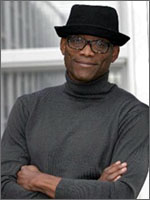 Bill T. Jones is the recipient of a 2007 Tony Award, 2007 Obie Award, and 2006 Stage Directors and Choreographers Foundation CALLAWAY Award for his choreography for Spring Awakening; the 2007 USA Eileen Harris Norton Fellowship; the 2006 Lucille Lortel Award for Outstanding Choreography for The Seven; the 2005 Wexner Prize; the 2005 Samuel H. Scripps American Dance Festival Award for Lifetime Achievement; the Harlem Renaissance Award; the 2003 Dorothy and Lillian Gish Prize; and the 1994 MacArthur "Genius" Award. In 2000, The Dance Heritage Coalition named Mr. Jones "An Irreplaceable Dance Treasure." Mr. Jones began his dance training at the State University of New York at Binghamton (SUNY), studying classical ballet and modern dance. He choreographed and performed worldwide as a soloist and duet company with his late partner, Arnie Zane, before forming the Bill T. Jones/Arnie Zane Dance Company in 1982.
Bill T. Jones is the recipient of a 2007 Tony Award, 2007 Obie Award, and 2006 Stage Directors and Choreographers Foundation CALLAWAY Award for his choreography for Spring Awakening; the 2007 USA Eileen Harris Norton Fellowship; the 2006 Lucille Lortel Award for Outstanding Choreography for The Seven; the 2005 Wexner Prize; the 2005 Samuel H. Scripps American Dance Festival Award for Lifetime Achievement; the Harlem Renaissance Award; the 2003 Dorothy and Lillian Gish Prize; and the 1994 MacArthur "Genius" Award. In 2000, The Dance Heritage Coalition named Mr. Jones "An Irreplaceable Dance Treasure." Mr. Jones began his dance training at the State University of New York at Binghamton (SUNY), studying classical ballet and modern dance. He choreographed and performed worldwide as a soloist and duet company with his late partner, Arnie Zane, before forming the Bill T. Jones/Arnie Zane Dance Company in 1982.
Website: http://www.billtjones.org
SARAH JONES, (USA)
 Jazz vocalist Sara Jones has been delighting audiences nationwide since she began singing professionally in 2001. Praised by critics for her trademark 'lush vocals,' and her 'velvet embrace' of the music (BVS Reviews, allaboutjazz.com), Sara beguiles and charms her listeners at every performance. The first place winner of the 2004 Billie Holiday Vocal Competition, Sara has toured nearly all 50 states and performed in numerous concert halls across the country. Currently, she is a featured artist on the newly released album by The Young Brothers entitled Tales of Time, which is creating serious buzz among jazz critics.
Jazz vocalist Sara Jones has been delighting audiences nationwide since she began singing professionally in 2001. Praised by critics for her trademark 'lush vocals,' and her 'velvet embrace' of the music (BVS Reviews, allaboutjazz.com), Sara beguiles and charms her listeners at every performance. The first place winner of the 2004 Billie Holiday Vocal Competition, Sara has toured nearly all 50 states and performed in numerous concert halls across the country. Currently, she is a featured artist on the newly released album by The Young Brothers entitled Tales of Time, which is creating serious buzz among jazz critics.
Sara has performed as a soloist with the National Symphony Orchestra, Cincinnati Pops Orchestra, and Ravinia Festival Orchestra, under the batons of Emil de Cou and Erich Kunzel. An additional highlight includes a solo performance on the Esplanade with Keith Lockhart and the Boston Pops Orchestra. In the local Baltimore/Washington area, Sara was a featured vocalist with the Jazz Ambassadors and has graced the stages of the Hippodrome Theater, Meyerhoff Symphony Hall, and the Kennedy Center for the Performing Arts.
Sara began her musical career as a pianist. At age 14, she was playing professionally and by 18, won first prize in the W.A. Virts Piano Concerto Competition. She received her B.A. in Music at St. Mary's College of Maryland and earned her M.M. in Piano Accompanying at the University of Cincinnati College-Conservatory of Music. After graduation she chose to pursue a professional vocal career. Though she sings full time, Sara continues to perform as a pianist and accompanies both singers and instrumentalists on recitals.
Website: http://www.sarahjonesonline.com
SALIF KEITA AND HIS BAND, (Mali)
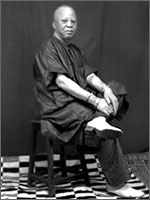 Born In Mali, West Africa in 1949, he comes from a noble lineage, a direct descendent of Sundiata Keita, the Mandinka warrior king who founded the Malian empire in the 13th century. Salif Keita was born an albino - a sign of bad luck and was shunned and ostracised by his family and community alike. He originally wished to become a teacher, but unemployment at that time was high, so he switched to music. In mali, musicians are often thought of as dissolute and irresponsible; also for a son of a royal family to go into a job that was traditionally the preserve of the lower castes was virtually unthinkable. His poor eyesight also contributed to his personal sense of alienation. In 1967 he moved to Bamako where he began playing in nightclubs with one of his brothers. Two years later he joined the 16 member, government sponsored Rail Band. In 1973 he left the Rail Band to join Les Ambassadeurs. By 1977, Salif Keita composed Mandjou, a track which is seen to be a key signature tune of his. Due to increasing political unrest, Salif Keita left Mali in the mid-'70s for the Ivory Coast, the other members of the band followed suit and they changed the name of the band to Les Ambassadeurs Internationales. The band broke up in 1984, and Salif Keita moved to Paris. launching a career which saw him recording the classic SORO album in 1987. A recording deal with Island Records followed, which resulted in the release of the albums KO-Yan in 1989, followed by AMEN in 1991 as well as the 1992 film score for L'enfant Lion. Kaita's music blends together the traditional griot music of his Malian childhood with other West African influences from Cuba, Spain and Portugal. An unmistakebly overall Islamic sound.
Born In Mali, West Africa in 1949, he comes from a noble lineage, a direct descendent of Sundiata Keita, the Mandinka warrior king who founded the Malian empire in the 13th century. Salif Keita was born an albino - a sign of bad luck and was shunned and ostracised by his family and community alike. He originally wished to become a teacher, but unemployment at that time was high, so he switched to music. In mali, musicians are often thought of as dissolute and irresponsible; also for a son of a royal family to go into a job that was traditionally the preserve of the lower castes was virtually unthinkable. His poor eyesight also contributed to his personal sense of alienation. In 1967 he moved to Bamako where he began playing in nightclubs with one of his brothers. Two years later he joined the 16 member, government sponsored Rail Band. In 1973 he left the Rail Band to join Les Ambassadeurs. By 1977, Salif Keita composed Mandjou, a track which is seen to be a key signature tune of his. Due to increasing political unrest, Salif Keita left Mali in the mid-'70s for the Ivory Coast, the other members of the band followed suit and they changed the name of the band to Les Ambassadeurs Internationales. The band broke up in 1984, and Salif Keita moved to Paris. launching a career which saw him recording the classic SORO album in 1987. A recording deal with Island Records followed, which resulted in the release of the albums KO-Yan in 1989, followed by AMEN in 1991 as well as the 1992 film score for L'enfant Lion. Kaita's music blends together the traditional griot music of his Malian childhood with other West African influences from Cuba, Spain and Portugal. An unmistakebly overall Islamic sound.
Website: http://salifkeita.artistes.universalmusic.fr
LADYSMITH BLACK MAMBAZO, (South Africa)
Members: Joseph Shabalala; Msizi Shabalala; Russel Mthembu; Albert Mazibuko; Thulani Shabalala; Thamsanqa Shabalala; Sibongiseni Shabalala; Abedneko Mazibuko
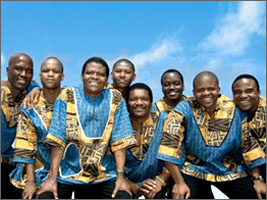 Ladysmith Black Mambazo represents the traditional culture of South Africa and is regarded as the country's cultural emissary at home and around the world. In 1993, at Nelson Mandela's request, Ladysmith Black Mambazo accompanied the future President to the Nobel Peace Prize ceremony in Oslo, Norway. Mambazo sang again at President Mandela's inauguration in May of 1994. They are a national treasure of the new South Africa in part because they embody the traditions suppressed in the old South Africa.
Ladysmith Black Mambazo represents the traditional culture of South Africa and is regarded as the country's cultural emissary at home and around the world. In 1993, at Nelson Mandela's request, Ladysmith Black Mambazo accompanied the future President to the Nobel Peace Prize ceremony in Oslo, Norway. Mambazo sang again at President Mandela's inauguration in May of 1994. They are a national treasure of the new South Africa in part because they embody the traditions suppressed in the old South Africa.
The traditional music sung by Ladysmith Black Mambazo is called ISICATHAMIYA (Is-Cot-A-Me-Ya). It was born in the mines of South Africa. Black workers were taken by rail to work far away from their homes and their families. Poorly housed and paid worse, they would entertain themselves, after a six-day week, by singing songs into the wee hours every Sunday morning. Cothoza Mfana they called themselves, "tip toe guys", referring to the dance steps choreographed so as to not disturb the camp security guards. When miners returned to the homelands, the tradition returned with them. There began a fierce, but social, competition held regularly and a highlight of everyone's social calendar. The winners were awarded a goat for their efforts and, of course, the adoration of their fans. These competitions are held even today in YMCA assembly halls and church basements throughout Zululand South Africa.
The group has also performed at two Nobel Peace Prize Ceremonies, a performance for Pope John Paul II, South African Presidential inaugurations, the 1996 Summer Olympics, and many musical award shows from around the world.
Website: http://www.mambazo.com
EMELINE MICHEL, (Haiti)
 She is the reigning Queen of Haitian Song: a captivating performer, versatile vocalist and one of the premier Haitian songwriters of her generation. She has recorded and appeared on concert stages throughout the Caribbean, Europe, and North & South America for over 20 years. Singing both in French and Haitian Creole, her nine albums, Douvanjou ka leve (May the Sun Rise), Pa gen manti nan sa (There's No Doubt), Rhum & Flamme (Rum & Flame), Tout Mon Temps (All My Time), The Very Best, Ban'm pase (Let Me Pass), Cordes et Ame (Strings and Soul), Rasin Kreyol (Creole Roots), and Reine de Cour (Queen of Hearts) have catapulted her to international acclaim.
She is the reigning Queen of Haitian Song: a captivating performer, versatile vocalist and one of the premier Haitian songwriters of her generation. She has recorded and appeared on concert stages throughout the Caribbean, Europe, and North & South America for over 20 years. Singing both in French and Haitian Creole, her nine albums, Douvanjou ka leve (May the Sun Rise), Pa gen manti nan sa (There's No Doubt), Rhum & Flamme (Rum & Flame), Tout Mon Temps (All My Time), The Very Best, Ban'm pase (Let Me Pass), Cordes et Ame (Strings and Soul), Rasin Kreyol (Creole Roots), and Reine de Cour (Queen of Hearts) have catapulted her to international acclaim.
Emeline Michel is beloved by Haitians for combining traditional rhythms with social, political and inspirational content. She is a member of a unique generation of Haitian musicians that emerged in the late 1980’s and also includes guitarist/vocalist Beethova Obas and the bands Boukman Eksperyans and Boukan Guinen. This wave of artists emphasized complex themes, conscious lyrics, and a broad palette of musical styles, including the native Haitian compas, twoubadou and rara.
Website: http://www.emeline-michel.com
THE MARLEY BROTHERS, (Jamaica)
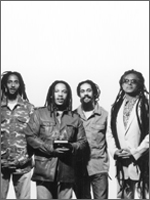
CCH POUNDER, (Guyana/USA/Senegal)
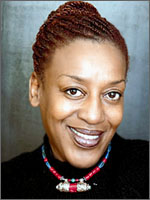 CCH was nominated for two NAACP Image Award for “Best Actress in a Drama Series” and recently received her second Satellite Award for “Performance by an Actress in a Series, Drama.” Other accolades for CCH include an Emmy nomination for “Best Supporting Actress” for her role as Dr. Angela Hicks on the NBC series ER, and an Emmy nomination for “Outstanding Guest Actress in a Drama Series” for her role in FOX’s THE X-FILES. In addition, she received a Grammy Award nomination for Best Spoken Word Album for GROW OLD ALONG WITH ME, THE BEST IS YET TO COME and won an AUDI, the Audio Publishers Association’s top honor, for WOMEN IN THE MATERIAL WORLD. Also, CCH released her first solo album, SMOKE, which combined poetry and music.
CCH was nominated for two NAACP Image Award for “Best Actress in a Drama Series” and recently received her second Satellite Award for “Performance by an Actress in a Series, Drama.” Other accolades for CCH include an Emmy nomination for “Best Supporting Actress” for her role as Dr. Angela Hicks on the NBC series ER, and an Emmy nomination for “Outstanding Guest Actress in a Drama Series” for her role in FOX’s THE X-FILES. In addition, she received a Grammy Award nomination for Best Spoken Word Album for GROW OLD ALONG WITH ME, THE BEST IS YET TO COME and won an AUDI, the Audio Publishers Association’s top honor, for WOMEN IN THE MATERIAL WORLD. Also, CCH released her first solo album, SMOKE, which combined poetry and music.
Her life began in Guyana, South America. When CCH’s parents moved to the United States, they sent their two girls to a convent boarding school in Sussex, England. In England, CCH was introduced to poetry, painting and drama, most especially the classics.
After graduating from high school, CCH entered Hastings College of Arts in Sussex but soon left and moved permanently to the U.S. to be with her family, which by now had settled in Brooklyn, New York. Eventually, CCH attended Ithaca College in upstate New York where her talents caught the attention of Professor Earl McCarroll, from the drama department. Upon graduation, it was McCarroll who urged CCH to join a regional theater company and she moved to Monmouth, Maine and the Shakespeare Theater.
A few years ago, CCH became involved with the organization, ARTISTS FOR A NEW SOUTH AFRICA, a nonprofit organization dedicated to combating the African AIDS pandemic and advancing democracy and equality in South Africa. CCH and her husband, anthropologist Boubacar Kone have built The Boribana Museum (www.boribanamuseum.org) in Dakar, Senegal for the study of cultures of the African Diaspora. In October of 1997, CCH was honored by the Institute of Caribbean Studies with their award for Excellence in the Arts.
Website: http://www.cchpounder.com
PHYLICIA RASHAD, (USA)
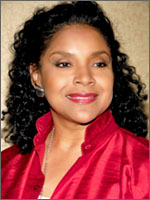 One of the best-loved matriarchs in television history, Phylicia Rashad made her Broadway debut playing a munchkin in the original 1975 production of “The Wiz.” Rashad segued into television in the early 1980’s. Her breakthrough role as no-nonsense matriarch Clair Huxtable on the landmark sitcom “The Cosby Show” (NBC, 1984-1992) forever changed her life.
One of the best-loved matriarchs in television history, Phylicia Rashad made her Broadway debut playing a munchkin in the original 1975 production of “The Wiz.” Rashad segued into television in the early 1980’s. Her breakthrough role as no-nonsense matriarch Clair Huxtable on the landmark sitcom “The Cosby Show” (NBC, 1984-1992) forever changed her life.
Born in Texas on June 19, 1948, after graduating from Jack Yates Senior High School, Rashad attended Washington, D.C.’s Howard University. There, she graduated in 1970 with magna cum laude honors and a Bachelor’s degree in Fine Arts.
Moving to New York City in the early 1970’s, Rashad found work with the famed Negro Ensemble. In 1981, Rashad joined the company of the hit musical, “Dreamgirls,” where she understudied the role of Deena for Sheryl Lee Ralph.
Rashad transitioned effortlessly to television, and, in 1982, landed a regular role on the daytime soap, “One Life to Live.” In 1984, Rashad won her breakthrough role when comedian Bill Cosby tapped her to play his fictional wife, Clair Huxtable, on “The Cosby Show.” which ended its historic eight-season run in 1992.
In 1996, Rashad made an unexpected return to television, once again playing Bill Cosby’s better half in the eponymous follow-up series, “Cosby” (CBS, 1996-2000).
Returning to her theater roots after a 20 year absence, Rashad made history for her award-winning role in the 2004 Broadway revival of the play, “A Raisin’ In The Sun.” Rashad’s unforgettable performance as grande dame Lena Younger was rewarded with a Tony Award for Best Lead Actress – the first ever for an African-American actress. In 2007, Rashad reprised her award-winning role in the ABC film adaptation of “A Raisin the Sun.”
NOAH STEWART, Tenor (USA)
 Noah Stewart’s musical development started in Harlem where he studied classical music at The Harlem School of the Arts. At age 12, he began doing voice-overs for Sesame Street and television school specials, and won first place in the New England Music Competition in Boston. Stewart attended Fiorello LaGuardia High School, where he performed his first opera (La Costanza in amor vince l’inganno). He also sang back-up vocals for pop artists such as Hootie and the Blowfish, Mariah Carey, and Coolio. He was recommended by his mentor, the great soprano Leontyne Price, to attend The Juilliard School, where he was awarded a full scholarship.
Noah Stewart’s musical development started in Harlem where he studied classical music at The Harlem School of the Arts. At age 12, he began doing voice-overs for Sesame Street and television school specials, and won first place in the New England Music Competition in Boston. Stewart attended Fiorello LaGuardia High School, where he performed his first opera (La Costanza in amor vince l’inganno). He also sang back-up vocals for pop artists such as Hootie and the Blowfish, Mariah Carey, and Coolio. He was recommended by his mentor, the great soprano Leontyne Price, to attend The Juilliard School, where he was awarded a full scholarship.
At the end of his senior year at Juilliard, he was unable to attend his own graduation for the opportunity to perform the title role in Acis and Galatea on tour with The Bach Society of Columbia in Germany. Upon his return to the United States, Stewart was accepted into the San Francisco Opera’s prestigious Merola Program, where he was given his first taste of modern opera as The Wizard in Conra Susa’s Transformations. He was subsequently invited to become a San Francisco Opera Adler Fellow, and numerous important debuts soon followed including T. Morris Chester in the world premiere of Philip Glass’ Appomatox, Malcolm in Macbeth, and Macduff in Macbeth. After graduating from the Adler Fellowship, Stewart made his next modern opera debut as The Prince in the first fully-staged production of John Adams’ A Flowering Tree with Chicago Opera Theater.
In 2008, Opera News gave Stewart rave reviews for his debuts in Philip Glass and John Adams’ productions. Stewart has also been awarded numerous prizes in The Palm Beach Opera, Leontyne Price, George London, Licia Albanese, Opera Index Competitions, and just recently first place in The Mario Lanza Competition for Tenors. Recent Engagements include joining The Metropolitan Opera roster in the fall of 2008 to cover Arturo in Lucia di Lammermoor, Azael in L’Enfant Prodigue with Metro Chamber Orchestra, Manrico in Il Trovatore with Festival Opera and Turiddu in Cavalleria Rusticana with The One World Symphony. Upcoming performances include Don Jose in La Tragédie de Carmen with Chicago Opera Theater, Tonio in the World Premiere of Louis Gioia’s I Tre Compagni with Encompass Opera, Mozart’s Requiem at Carnegie Hall under the baton of John Rutter , Danilo in The Merry Widow with Washington Summer Opera, Ismaele in Nabucco with Michigan Opera Theater and Narraboth in Salome with Arizona Opera.
Website: www.noahstewart.com
RANDY WESTON AND HIS QUINTET, (USA)
 After contributing six decades of musical direction and genius, Randy Weston remains one of the world's foremost pianists and composers today, a true innovator and visionary.
After contributing six decades of musical direction and genius, Randy Weston remains one of the world's foremost pianists and composers today, a true innovator and visionary.
Encompassing the vast rhythmic heritage of Africa,
his global creations musically continue to inform and inspire.
"Weston has the biggest sound of any jazz pianist since Ellington and Monk, as well as the richest most inventive beat," states jazz critic Stanley Crouch, "but his art is more than projection and time; it's the result of a studious and inspired intelligence...an intelligence that is creating a fresh synthesis of African elements with jazz technique".
Website: http://www.randyweston.info
GABRI CHRISTA, Choreographer (Curacao/The Netherlands)
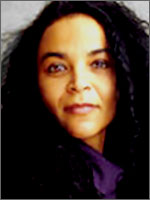 Born and raised in Curaçao, the Dutch Caribbean, she came to New York, via the Netherlands, Cuba and Puerto Rico.
Born and raised in Curaçao, the Dutch Caribbean, she came to New York, via the Netherlands, Cuba and Puerto Rico.
Her performances have been shown in New York at Dance Theatre Workshop, PS 122, Aaron Davis Hall, Central Park Summer Stage, Judson Church, Center for the Arts at the College of Staten Island, Snug Harbor Cultural Center, 92nd Street Y, University Settlement. Outside New York her work has been performed in Albany, Philadelphia, Pittsburg, Minneapolis, Salt Lake City, Seattle and Princeton. Abroad her work was performed on the Caribbean islands of Curaçao, Aruba, St. Maarten, St. Thomas, Puerto Rico, Guadeloupe and Cuba. South America in Venezuela and Suriname, and in Europe her work has toured extensively through out the Netherlands, Germany and Belgium.
She has been guest choreographer at Princeton University, University of Utah, Middle School for the Arts in West Palm Beach, Staten Island Ballet and other places.
Her short films were shown in New York at Dance on Camera Festival at Lincoln Center, Dance Theater Workshop, Cantor Film Center, Nueva Film festival Tokyo, Japan, Bonn Film Festival, Denver Pan-African Film Festival. Her film “High School” was awarded a Creative excellence award from ABC television.
She is a recipient of John Simon Guggenheim Fellowship and other awards /commissions including from the Jerome foundation, Pittsburg Dance Council, National Performance Network (NPN) Creation Fund, Arts International U.S. Fund for American Artists at International festivals, United states Information Agency, the Dutch Ministry of Culture, Council of the Arts and Humanities of Staten Island, and Dance theater Workshop’s Suitcase fund. She was a digital fellow and artist in residence at Dance Theater Workshop and at dvRepublic a project of the Black Film Maker Foundation.
As an educator she has taught and lectured at the University of Washington, Bates dance Festival, Manhattanville College, Fordham University, University of Michigan, New York University, Princeton University and Ballet Hispanico of New York. She has taught numerous workshops while traveling and also has taught extensively in New York City Public Schools.
She has been a contributing author to “Caribbean Dance from Abakua to Zouk” a de la Torre Bueno Price winning book.
Gabri Christa holds a BA from the College of the Arts, School for New Dance Development in the Netherlands and a MFA from the University of Washington.
She is a board member of Dance Theater Workshop and is an advisory board member for Dance/NYC.
Website: http://danzaisa.org
NELSON MANDELA
 Nelson Rolihlahla Mandela was born in Transkei, South Africa on July 18, 1918. His father was Chief Henry Mandela of the Tembu Tribe. Mandela himself was educated at University College of Fort Hare and the University of Witwatersrand and qualified in law in 1942. He joined the African National Congress in 1944 and was engaged in resistance against the ruling National Party's apartheid policies after 1948. He went on trial for treason in 1956-1961 and was acquitted in 1961.
Nelson Rolihlahla Mandela was born in Transkei, South Africa on July 18, 1918. His father was Chief Henry Mandela of the Tembu Tribe. Mandela himself was educated at University College of Fort Hare and the University of Witwatersrand and qualified in law in 1942. He joined the African National Congress in 1944 and was engaged in resistance against the ruling National Party's apartheid policies after 1948. He went on trial for treason in 1956-1961 and was acquitted in 1961.
After the banning of the ANC in 1960, Nelson Mandela argued for the setting up of a military wing within the ANC. In June 1961, the ANC executive considered his proposal on the use of violent tactics and agreed that those members who wished to involve themselves in Mandela's campaign would not be stopped from doing so by the ANC. This led to the formation of Umkhonto we Sizwe. Mandela was arrested in 1962 and sentenced to five years' imprisonment with hard labour. In 1963, when many fellow leaders of the ANC and the Umkhonto we Sizwe were arrested, Mandela was brought to stand trial with them for plotting to overthrow the government by violence. His statement from the dock received considerable international publicity. On June 12, 1964, eight of the accused, including Mandela, were sentenced to life imprisonment. From 1964 to 1982, he was incarcerated at Robben Island Prison, off Cape Town; thereafter, he was at Pollsmoor Prison, nearby on the mainland.
During his years in prison, Nelson Mandela's reputation grew steadily. He was widely accepted as the most significant black leader in South Africa and became a potent symbol of resistance as the anti-apartheid movement gathered strength. He consistently refused to compromise his political position to obtain his freedom.
Nelson Mandela was released on February 11, 1990. In 1991, at the first national conference of the ANC held inside South Africa after the organization had been banned in 1960, Mandela was elected President of the ANC while his lifelong friend and colleague, Oliver Tambo, became the organisation's National Chairperson.
Rolihlahla Nelson Dalibunga Mandela was inaugurated as President of a democratic South Africa on May 10, 1994.
Mr Mandela stepped down in 1999 after one term as President – but for him there has been no real retirement. He set up three foundations bearing his name: The Nelson Mandela Foundation, The Nelson Mandela Children’s Fund and The Mandela-Rhodes Foundation.
Whoopi Goldberg
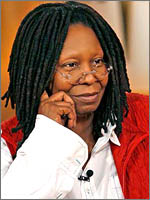 This brazen, unabashed comedienne, who moves effortlessly between comedy, television and feature films, first made her mark with the movie-going public as Celie in Steven Spielberg's The Color Purple (1985) for which she earned an Academy Award nomination.
This brazen, unabashed comedienne, who moves effortlessly between comedy, television and feature films, first made her mark with the movie-going public as Celie in Steven Spielberg's The Color Purple (1985) for which she earned an Academy Award nomination.
She has since appeared in a steady stream of popular motion pictures, including Jumpin' Jack Flash, Fatal Beauty (a second NAACP Image Award), Clara's Heart, Ghost, for which she took home a Best Supporting Actress Oscar, a Golden Globe, a third Image Award, the British Academy Award, an American Comedy Award and the Saturn Award (presented by the Academy of Science Fiction, Fantasy & Horror Films). The Long Walk Home (a fourth Image Award), Soapdish, The Player, Sister Act which garnered her yet another Golden Globe Award nomination, the NAACP Image Award for Best Actress in a Motion Picture and the Image Award for Motion Picture of the Year, Sarafina, Made in America and Corrina, Corrina. The phenomenal, surprising success of the featherweight Sister Act led to a reported $8 million salary in the sequel. She is currently a permanent cast-member on ABC’s The View with Barbara Walters.
In addition to the Oscar, a Grammy, two Golden Globe Awards, and multiple NAACP Image Awards, Whoopi has won a Tony for bringing Thoroughly Modern Millie to Broadway, along with the prestigious Kennedy Center Mark Twain Prize for American Humor, six People's Choice Awards and an unprecedented five Nickelodeon Kids' Choice Awards as Favorite Movie Actress.
A champion for the homeless, children, human rights, substance abuse, gay rights, the battle against AIDS, and other worthwhile causes, Goldberg received the NAACP's 1991 Entertainer of the Year and was named a UNICEF Goodwill Ambassador in 2003. In 1987, Whoopi, Billy Crystal and Robin Williams co-hosted HBO's now-historic Comic Relief benefit for the nation's homeless. Following the equally successful Comic Relief II, the three have hosted Comic Relief III, IV, V, VI and VII which have cumulatively raised more than $30 million. Always there for people in need, Whoopi also participated in the televised Hurricane Relief benefit to aid victims of Hurricane Andrew. In 1999, she became one of Essence Magazine's "Women of the Year." Whoopi fullfilled a childhood fantasy and became part of Hollywood history in February, 1995, when prints of her hands, feet and dreadlock braids were placed in cement in the forecourt of Mann's Chinese Theatre. She received her star on Hollywood's Walk of Fame on her birthday, November 13, 2001.
A recent DNA test traces Whoopi’s ancestry to the Papel and Bayote peoples of Guinea-Bissau. Her great-great grandparents, William and Elsie Washington, were among a very small number of African Americans who became landowners through homesteading in the years following the Civil War.
MUHAMMAD ALI
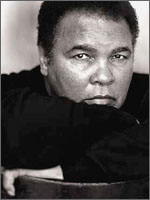 He's still the most recognizable man on earth. And over forty years after he burst onto the scene as a gold-medal winner at the 1960 Rome Olympics, Muhammad Ali remains a magical figure, known and loved throughout the world. His success as a boxer is widely respected, but Ali's greatest triumph lies in his legacy as a champion, leader, humanitarian, and artist. His work both inside and outside the ring truly makes Muhammad Ali "The Greatest of All Time." As a boxer, Muhammad brought unprecedented speed and grace to his sport, while his charm and wit changed forever what the public expected a champion to be. His accomplishments in the ring are the stuff of legend – two fights with Sonny Liston, where he proclaimed himself "The Greatest" and proved he was; three epic wars with Joe Frazier; the stunning victory over George Foreman in the Rumble in the Jungle; and dethroning Leon Spinks to become heavyweight champion for an unprecedented third time. But there was always far more to Muhammad than what took place in a boxing ring.
He's still the most recognizable man on earth. And over forty years after he burst onto the scene as a gold-medal winner at the 1960 Rome Olympics, Muhammad Ali remains a magical figure, known and loved throughout the world. His success as a boxer is widely respected, but Ali's greatest triumph lies in his legacy as a champion, leader, humanitarian, and artist. His work both inside and outside the ring truly makes Muhammad Ali "The Greatest of All Time." As a boxer, Muhammad brought unprecedented speed and grace to his sport, while his charm and wit changed forever what the public expected a champion to be. His accomplishments in the ring are the stuff of legend – two fights with Sonny Liston, where he proclaimed himself "The Greatest" and proved he was; three epic wars with Joe Frazier; the stunning victory over George Foreman in the Rumble in the Jungle; and dethroning Leon Spinks to become heavyweight champion for an unprecedented third time. But there was always far more to Muhammad than what took place in a boxing ring.
Daring to go against political policy to help people in need, Muhammad has made goodwill missions to Afghanistan and North Korea; delivered sorely-needed medical supplies to an embargoed Cuba; traveled to Iraq and secured the release of 15 United States hostages during the first Gulf War; and journeyed to South Africa to meet Nelson Mandela upon his release from prison.
Today, championing the issues in the developing world has become a major focus of Muhammad's life. He has been instrumental in providing over 232 million meals to the world's hungry. Traveling across continents, he has hand-delivered food and medical supplies to children in Cote D'Ivoire, Indonesia, Mexico, and Morocco among other countries. In addition to his international efforts, Muhammad is equally devoted to helping charities at home. He has visited countless numbers of soup kitchens and hospitals, and helped such organizations as the Make-A-Wish-Foundation and the Special Olympics. At the State Capitol in Michigan, he advocated new laws for protecting children. He annually participates in "Fight Night," which generates funds for the Muhammad Ali Parkinson Research Center at Barrow Neurological Institute, in Phoenix, Arizona. He is also the namesake of the Muhammad Ali Boxing Reform Act, a federal law that regulates professional boxing to protect boxers from unscrupulous promoters and poor health and bout conditions. Muhammad has testified before the United States Senate several times regarding boxing reform. For his humanitarian efforts, Muhammad has been the recipient of countless awards.
Website: http://www.ali.com
Thursday, 26 March - NGO BRIEFING
- Sylviane A. Diouf, Ph.D. (Senegal), Author of several books on slavery, Curator of Digital Collections, Schomburg Center for Research in Black Culture.
- Jeffrey Heyman (USA), Executive Director, Marketing, Public Relations and Communications, Peralta Community College District.
- Jean Claude Martineau (Haiti), poet and historian.
- Ngugi wa Thiong'o (Kenya), Author and distinguished Professor of English and Comparative Literature, University of California; and
- Derek Walcott (St Lucia), Nobel Prize
Promotional Materials
Poster
Documents
-
Breaking The Silence: The Transatlantic Slave Trade Education Project
-
Breaking The Silence: Learning About the Transatlantic Slave Trade
-
Lest We Forget -- The Triumph Over Slavery


